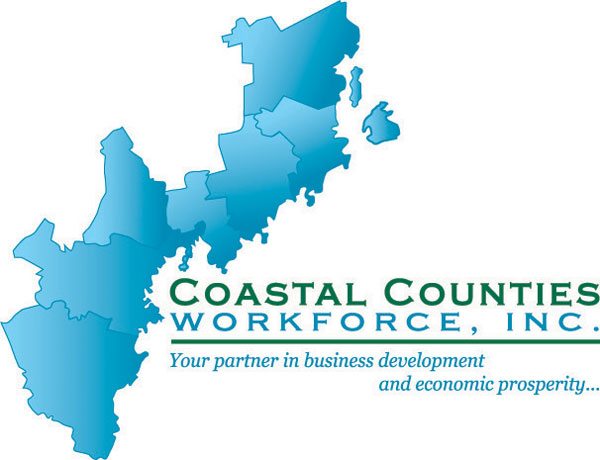
December 18, 2017; Portland Press Herald
In Maine, Republican Governor Paul LePage is using the power of the governor’s office to try to force a nonprofit to adopt his ideas. The nonprofit has sued to get its funds, but the ongoing battle is already hurting staff and programming.
This is, of course, not Governor LePage’s first foray into head-to-head gubernatorial combat with a nonprofit or field of nonprofits. We remember his harassment of environmental donors, his successful and highly aggressive attempt to block a political rival from the top executive position at a charter school (a case in which he threatened to defund the organization), and his various proposals to tax and block bond programs for nonprofits. Now, he turns his attention to the field of workforce development, choking off the sources of funding in the field.
Coastal Counties Workforce Inc. administers funding allocated by the Workforce Innovation & Opportunity Act, signed in 2014 and updated in 2016. The Act funds programs including “industry focused, reemployment services that support job training, credential attainment, job search guidance and activities, and employer engagement.” The CCW administers service delivery, reporting, monitoring, and contracting for programs in its area, which contains half of Maine’s population.
Although $8.4 million was allocated to these programs for 2017, LePage has held the funds hostage until his demands are met, including:
- Allocate 60 percent of funding to job training (the typical level is closer to half that)
- Consolidate the state’s three workforce boards into a centrally administered one in Augusta
The Governor has been told that 72 percent of the funds expended by Local Workforce Boards are “administrative,” while only 28 percent are directly used for direct participant costs (i.e., training).…A good portion of the 72 percent is, in fact, spent on crucial case management services. The majority of customers who are serviced are those “most in need” and therefore require intensive case management to be successful. They have multiple barriers to employment, requiring assistance with resume development, career exploration, testing and assessment, and job coaching, in addition to one-on-one counseling. Interestingly, not only are these services needed by most customers in order to be successful, but the funding law (WIOA) requires the provision of these services. It is not an option to stop providing case management services under this program.
Sign up for our free newsletters
Subscribe to NPQ's newsletters to have our top stories delivered directly to your inbox.
By signing up, you agree to our privacy policy and terms of use, and to receive messages from NPQ and our partners.
“Nobody around the country is anywhere close to that percentage [of 60],” Kelly McDonald, the attorney for Coastal Counties, told the Bangor Daily News. “It is really just not feasible to do that and still be in compliance with all of the other requirements that we have to follow under federal law and all the other services we have to provide.”
As for the consolidation, the Department of Labor under both Presidents Obama and Trump refused LePage’s request to consolidate the three boards. Michael Bourret, the executive director of Coastal Counties Workforce, Inc. in Brunswick, explained, “There are about 500 workforce development boards around the country, not just 50.” Nevertheless, according to the Portland Press Herald, “After Labor Department officials in the Trump administration said they could not legally accommodate his request, LePage wrote in a letter to Labor Secretary Alexander Acosta that ‘Maine is no longer participating in the WIOA Title 1B program’ and asked the department not to send any more money to the state.”
The governor originally choked off funds in 2016, but then let through a portion of the money. Since then, according to Bourret’s testimony, “the agency has tapped into leftover 2016 funds but would have to close sometime next year without additional money.” That is, they managed with last year’s funding through the end of this year, but they can’t make it three years on one year’s income. Their Form 990 from 2015 shows a bit less than $10,000 in gifts and grants, and nearly $6 million in government funding. The lack of diversity in their funding stream means that when the federal pipe closes, they and their constituents are out of luck.
The basis of the lawsuit is Bourret’s refusal to sign the contract while it stipulates a goal he thinks is unreasonable; he suing to get the funds for his organization without the new contract. Although the Maine State Workforce Board rejected the hard 60-percent baseline, and came to an agreement about setting 45 percent as their goal, the contract Bourret received contained the same hard 60-percent threshold. “I thought the goal was unethical and, as a public steward, I wouldn’t be doing my job to sign this contract,” said Bourret.
The use of a workplace development initiative as a political bludgeon is despicable, especially given that LePage’s demands seem to be both unreasonable and legally impossible.
CCW is not giving up the fight; the court case’s first hearing was on Tuesday. In the meantime, they are preparing for the worst. “Members at some workforce development CareerCenters already have received conditional layoff notices connected to the LePage administration’s disagreement,” said Coastal Counties Workforce’s deputy director, Antoinette Mancusi.
CCW’s tenacity in sticking to its principles and its savvy financial planning have allowed it to survive over a year of stringent opposition so far; hopefully they will carry it forward and continue to serve their constituents, despite their governor’s stubbornness.—Erin Rubin











